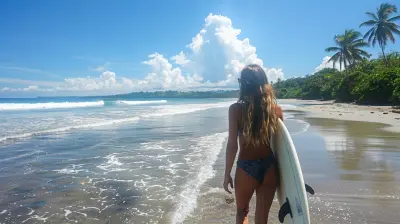Kiteboarding: Harnessing the Wind and Waves for an Unforgettable Ride
26 June 2025
Ever watched someone soaring across the ocean, surfing the swell with a gigantic kite overhead, and thought, “That looks insane!”? Well, welcome to the wild, windy, and wonderful world of kiteboarding. It’s not just a sport—it's a lifestyle, a community, and, honestly, one of the most thrilling ways to connect with nature.
In this article, we're diving deep (pun intended) into kiteboarding—what it is, how it works, why it's addictive, and how you can jump in (sometimes literally) to experience the ride of a lifetime.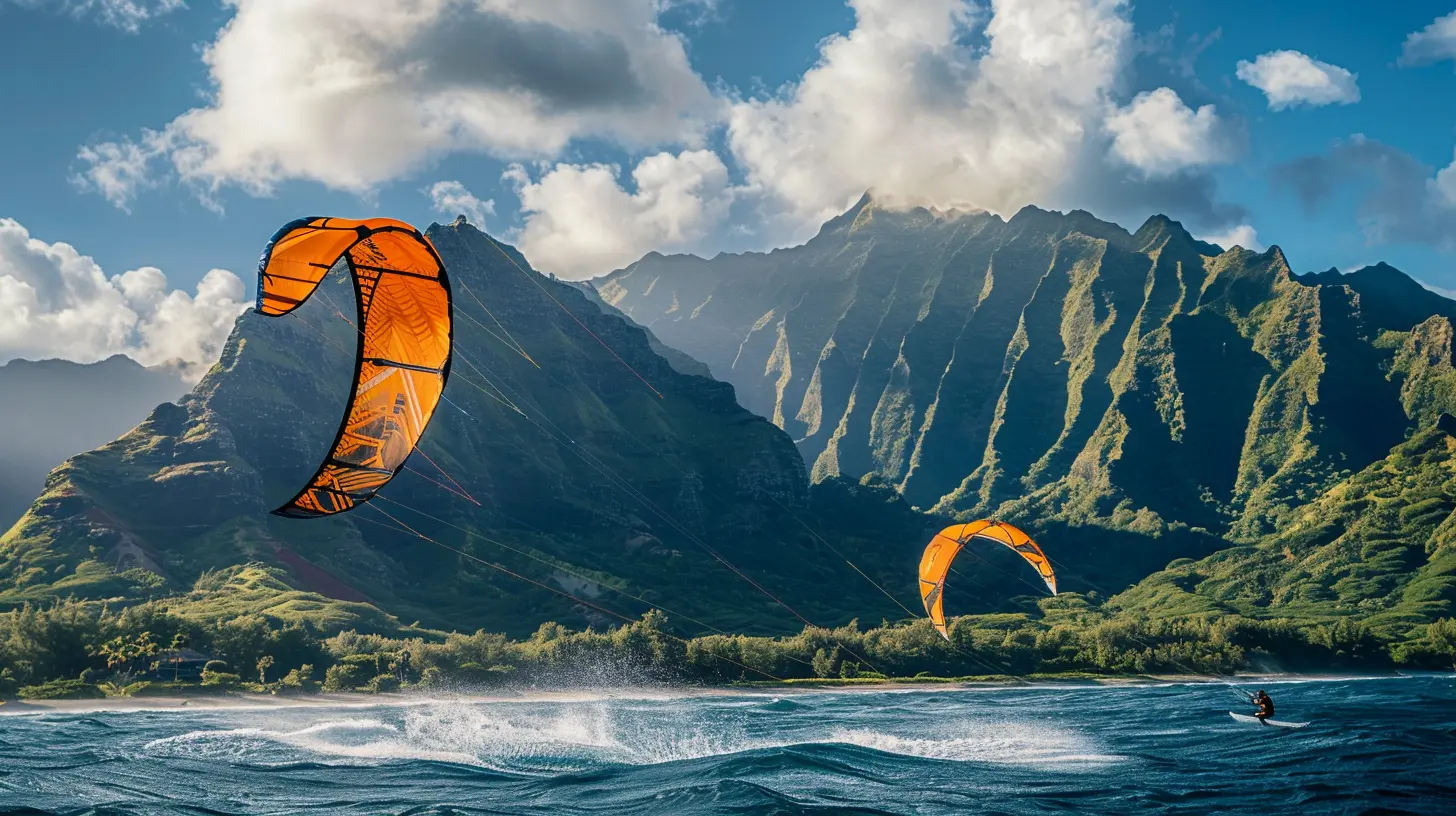
What Is Kiteboarding Anyway?
Let’s clear the air right off the bat—kiteboarding (or kitesurfing; the terms are often used interchangeably) is a water sport where you hop on a board, grab onto a massive kite, and let the wind pull you across the surface of the water. Sounds simple, right? But in the best way possible, it’s so much more.Here's the magic: the power of the wind, when paired with the fluidity of the ocean, creates a playground like no other. You can cruise, jump, flip, and even ride waves like a surfer—all while being towed by the sky.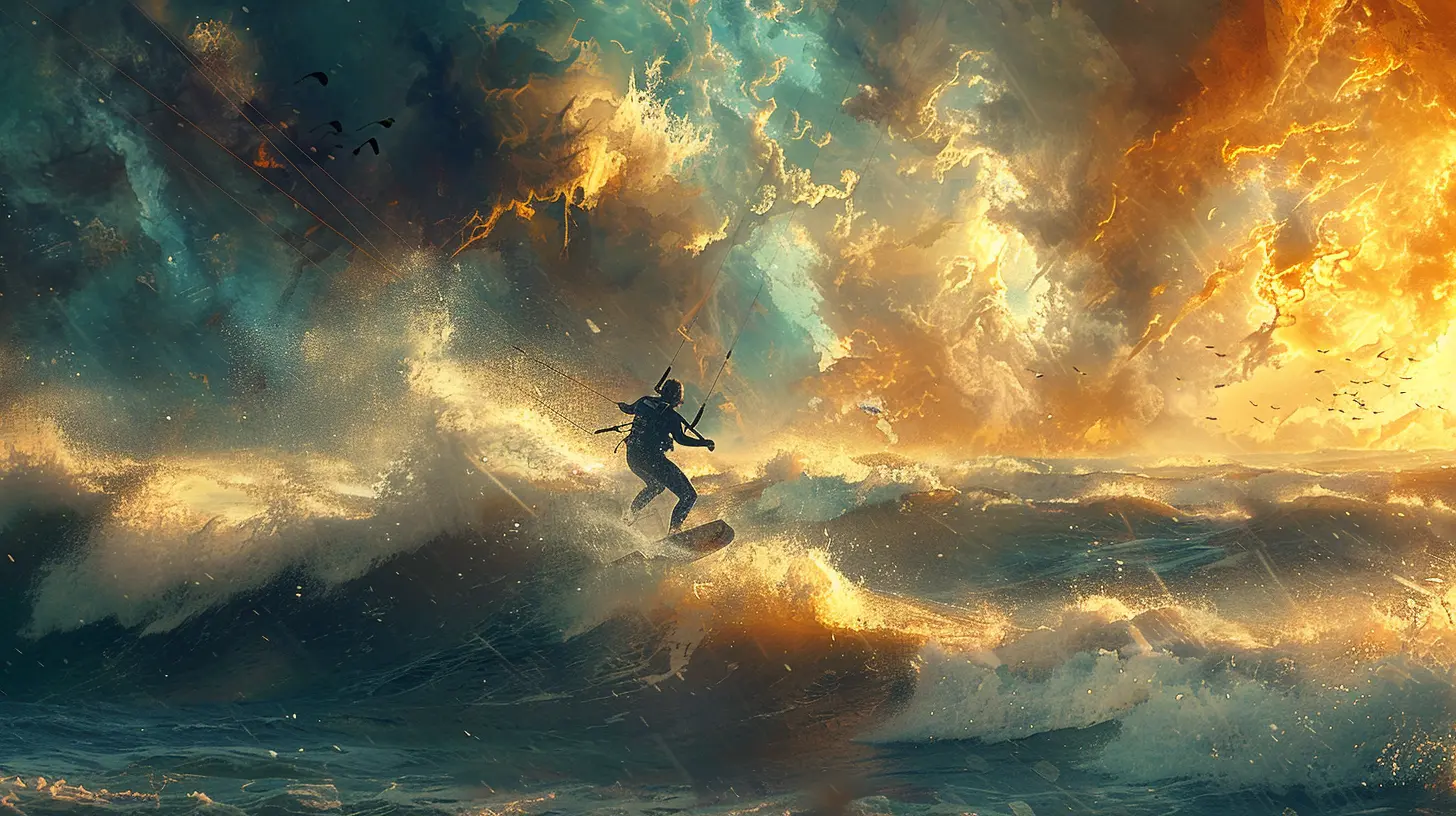
The Anatomy of the Ride: Gear You Need
Alright, let's talk tech—because while kiteboarding feels like flying, there's actually quite a bit of gear involved to make it happen safely and efficiently.1. The Kite
Not your childhood backyard kite, obviously. Kiteboarding kites come in different shapes (bow, delta, C-kites) suited for various styles—freestyle, wave riding, and cruising.Each kite is connected to a control bar via lines (usually four or five), which you steer to maneuver the kite in the sky.
2. The Control Bar
This is your steering wheel. Pulling on the left or right side changes the kite’s direction. It’s also how you manage the power of the kite—depowering when the wind gets feisty.3. The Harness
The kite pulls you with serious force. The harness (usually worn around the waist or hips) distributes that force across your body, so your arms don’t feel like they just did 100 pull-ups.4. The Board
Most commonly, kiteboarders use twin-tip boards (like wakeboards), but surf-style directional boards are also popular, especially for wave riding.Add to that a safety leash, helmet, and maybe a wetsuit if you’re not in tropical waters, and boom—you’re geared up.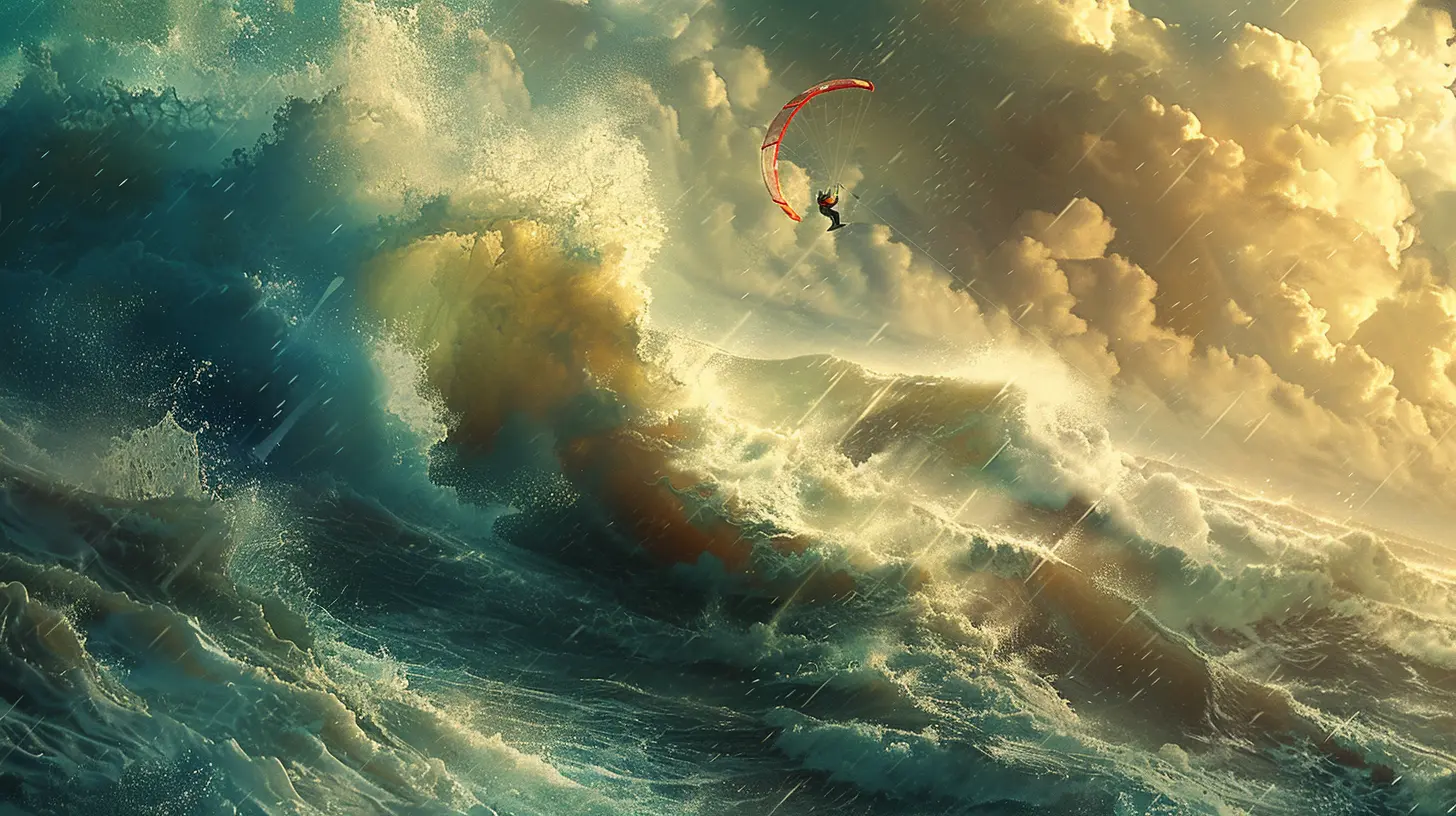
Why Kiteboarding? Because It's the Ultimate Freedom Machine
There are a ton of reasons people get addicted to kiteboarding. Here are a few that might just reel you in.1. It's Freakin' Exhilarating
Let’s be honest—how many sports let you combine surfing, flying, and sailing all at once? The moment you catch air for the first time (yes, you will fly), you’ll understand why kiteboarders have that stupidly huge grin on their faces.2. It’s a Full-Body Workout
Kiteboarding sneaks up on you fitness-wise. It strengthens your core, improves balance, tones your legs, and gives your upper body a solid workout too—all while having epic fun.3. You Can Travel to Epic Spots
From the turquoise lagoons of Turks and Caicos to the windy shores of Tarifa, Spain, kiteboarders are always chasing wind-filled adventures. It’s the perfect excuse to travel more.4. The Community is Awesome
Kiteboarders are some of the most chill, welcoming adventure-junkies you'll ever meet. Beaches become instant social hubs filled with stories, tips, and shared stoke.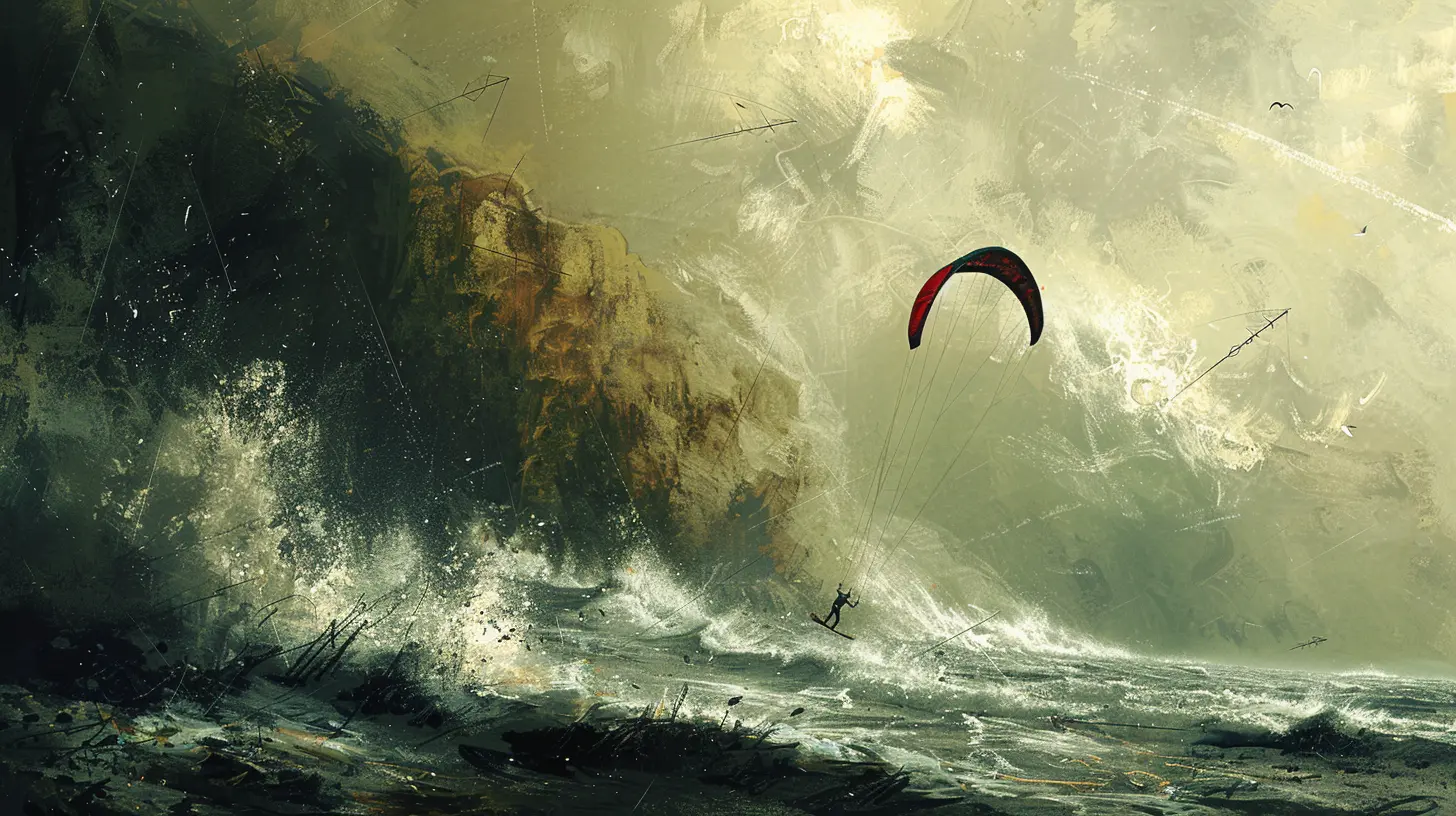
Getting Started: What You Need to Know
Kiteboarding has a bit of a learning curve, but don’t let that scare you off. Everyone starts somewhere, and with a little patience (and probably a few epic faceplants), you’ll get it.Take Lessons, Not Risks
Seriously, don’t try to teach yourself. This isn’t a YouTube-then-DIY kinda sport. Wind dynamics, kite control, and safety protocols are essential. A certified kite school will get you started with proper instruction and supervised sessions.Most schools offer 2-3 day intro courses that cover:
- Wind theory
- Kite setup and safety
- Body dragging (yep, it’s a thing)
- Water starts
- Riding and turning
Understand the Wind
The wind is your engine. But too much, too little, or shifting wind can turn a good session bad fast. Learning how to read the wind, forecasts, and weather patterns is fundamental.You’ll get used to terms like "side-onshore wind," "knots," and "wind window" real quick.
Safety First
Kiteboarding is safe when done right. However, you’ve got to respect the elements. Always have a safety plan, never ride alone, and double-check your gear every single time.Styles of Kiteboarding: Find Your Flavor
One of the dopest things about kiteboarding is its versatility. There’s not just one way to ride. Here are a few styles to keep your stoke variety-packed.1. Freestyle
This is all about tricks. Think jumps, spins, loops, and grabs. It’s flashy, high-flying, and full of adrenaline.2. Wave Riding
Love surfing? Imagine doing it with a kite. Riders use directional boards to carve waves like pros—even better, you’re not sitting around waiting for the next set.3. Freeride
No need for flips or waves—just get out there and cruise. Freeriding is the most relaxed style and often where newbies begin.4. Big Air
This is the go-big-or-go-home category. Riders aim for massive jumps and extended hang time. It’s awe-inspiring and a crowd favorite at world competitions.Best Places in the World to Kiteboard
Got your passport ready? Because once you catch the bug, you'll want to kite around the globe. Here are some iconic kiteboarding destinations.1. Cape Town, South Africa
Windy season? Check. Epic waves? Double check. Stunning scenery? Triple check. Cape Town is a mecca for big-air junkies and scenery lovers alike.2. Maui, Hawaii
The birthplace of modern kiteboarding. Trade winds and dreamy beaches make it a kiting paradise—just be ready for crowds and competitive lineups.3. Cabarete, Dominican Republic
This Caribbean gem offers warm water, reliable wind, and a vibrant kiteboarding scene. Great for beginners and pros alike.4. El Gouna, Egypt
A lesser-known gem, but with flat water spots and 300+ wind days a year, El Gouna is a must-ride.5. Tarifa, Spain
They don’t call it the Wind Capital of Europe for nothing. Consistent wind, Mediterranean vibes, and killer tapas? Yes please.The Mental Game: Why It’s More Than Just a Sport
Here’s the thing about kiteboarding—it does something to your brain. The mix of focus, adrenaline, and nature creates this zen-like state that’s hard to explain but impossible to forget.You stop thinking about your to-do list. You let go of that office tension. You're just… in the moment. It’s like meditation but way cooler.
And the confidence boost? Next level. Conquering the wind builds a kind of mental resilience that leaks into everyday life. You start to believe you can take on anything. Because you can.
Kiteboarding and Sustainability
Let’s also talk responsibility. Kiteboarding is a beautiful bond with nature, but it’s up to us to protect the waters and beaches we love.Many kiteboarders are eco-conscious—picking up plastic, avoiding damage to reefs, and using sustainable gear. It’s not just about what you do on the water—but off it too.
Look for brands that use recycled materials, support environmental causes, and produce ethically. Every choice counts.
Final Thoughts: Should You Try Kiteboarding?
So, let’s wrap this up. Should you try kiteboarding? If you love adventure, the ocean, and the idea of flying across waves with the wind at your back, then heck yes.It's not just a sport—it’s a way to connect with nature, challenge yourself, and meet some of the raddest people on the planet. It’ll frustrate you sometimes, sure. But the moment you catch your first ride? Unmatched euphoria.
So grab a kite, hit the beach, and let the wind carry you where you’ve never been before.
The ride is unforgettable. You just have to take that first leap.
all images in this post were generated using AI tools
Category:
Extreme SportsAuthor:

Onyx Frye
Discussion
rate this article
1 comments
Celine McElhinney
Kiteboarding offers an exhilarating blend of skill and adventure, perfectly combining wind and waves for a truly unforgettable experience.
July 4, 2025 at 2:32 AM

Onyx Frye
Thank you! I completely agree—kiteboarding truly is an incredible fusion of excitement and skill!


